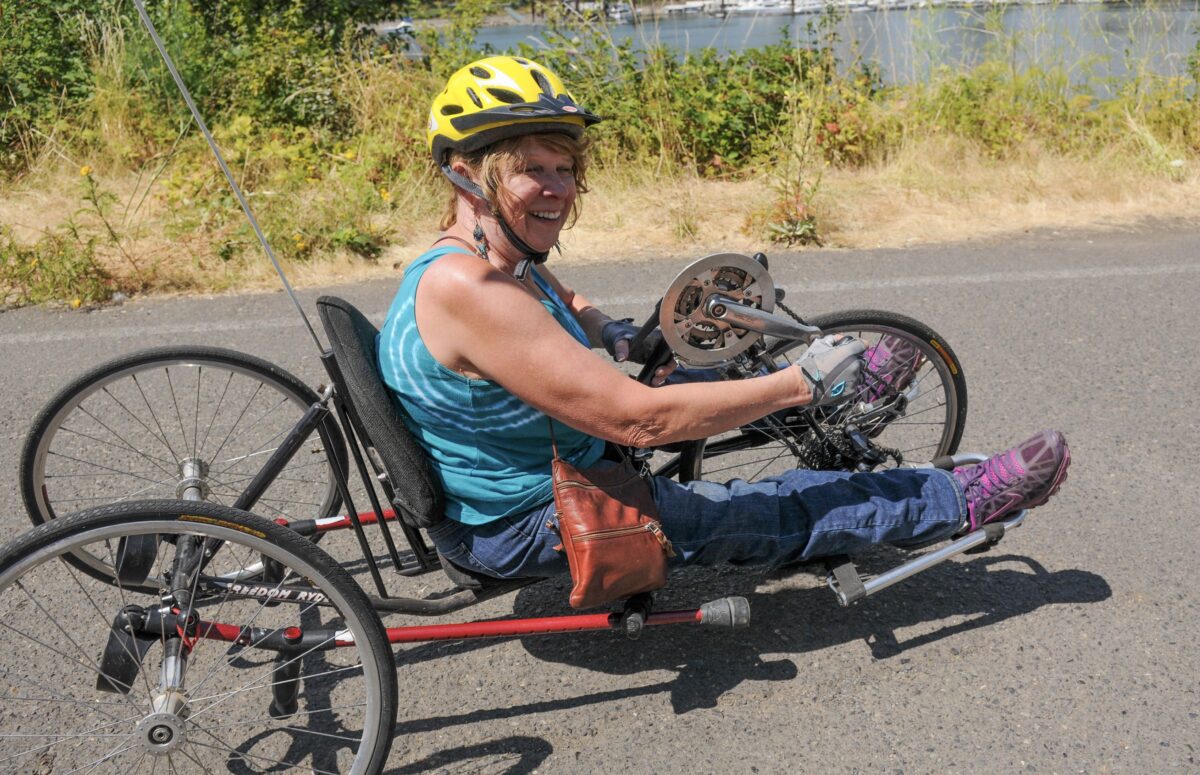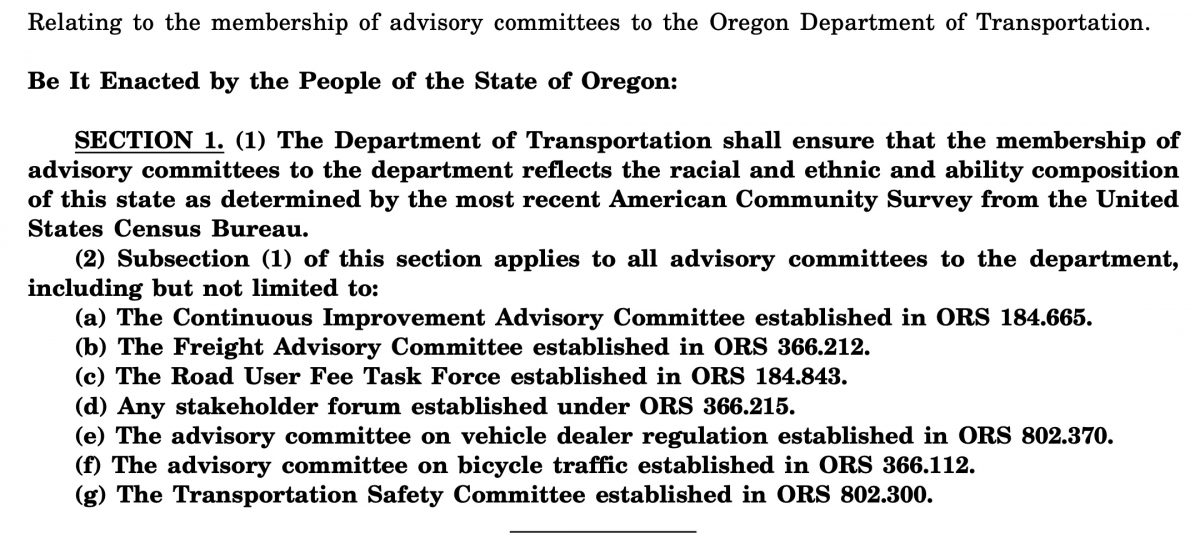
(Photo: Jonathan Maus/BikePortland)
“For the first time people with adaptive mobility devices will be recognized by the committees that represent them.”
— Chris Billman, advocate
A bill that will, “Ensure that the membership of [Oregon Department of Transportation] advisory committees reflects the racial and ethnic and ability composition of this state,” has passed the House and Senate and is headed to Governor Kate Brown’s desk.
As we reported last month, the idea for House Bill 2985 was hatched by Chris Billman, a Forest Grove man with scoliosis and other disabilities who cut his teeth as an activist in his fight to get a disabled vehicle placard for his recumbent bicycle.
Billman’s bill proved popular with Democrat and Republican legislators. It was supported 11-0 in the bipartisan Joint Transportation Committee then went on to pass the full House with 42 votes in favor (and 18 excused votes) and passed the full Senate by a vote of 24 to 3 (with 3 members excused). The three senators who voted against the bill were all Republicans: Bill Hansell (Athena), Dennis Linthicum (Klamath Falls), and Art Robinson (Cave Junction).
Advertisement
Here’s the text of the bill:

The bill was supported by Disability Rights Oregon, the City of Forest Grove, and the Forest Grove School District.
Reached for comment today, Billman said he feels the legislative victory will help usher in a new chapter at ODOT. “I think for the first time ODOT will have to represent the community they serve, the whole community. No more will the people with disabilities under the ADA be located in the office down the hall on the left. They will be at the table! For the first time people with adaptive mobility devices will be recognized by the committees that represent them. Single track ramps for diamond-frame bicycles will be no more! People using handcycles and new mobility devices will have a voice.”
The bill doesn’t require ODOT to make immediate changes to advisory committees. It would be triggered as vacancies arise.
The bill comes at a good time as micromobility continues to reshape how we think about who has rights to the road. “Bike lanes” are no longer just for bikes and as we open them up to electric scooters and other types of vehicles (they’ve always been open to wheelchair and mobility device users), this bill will help make sure we hear from a wider set of voices as we make decisions about projects, policies, and designs.
— Jonathan Maus: (503) 706-8804, @jonathan_maus on Twitter and jonathan@bikeportland.org
— Get our headlines delivered to your inbox.
— Support this independent community media outlet with a one-time contribution or monthly subscription.

